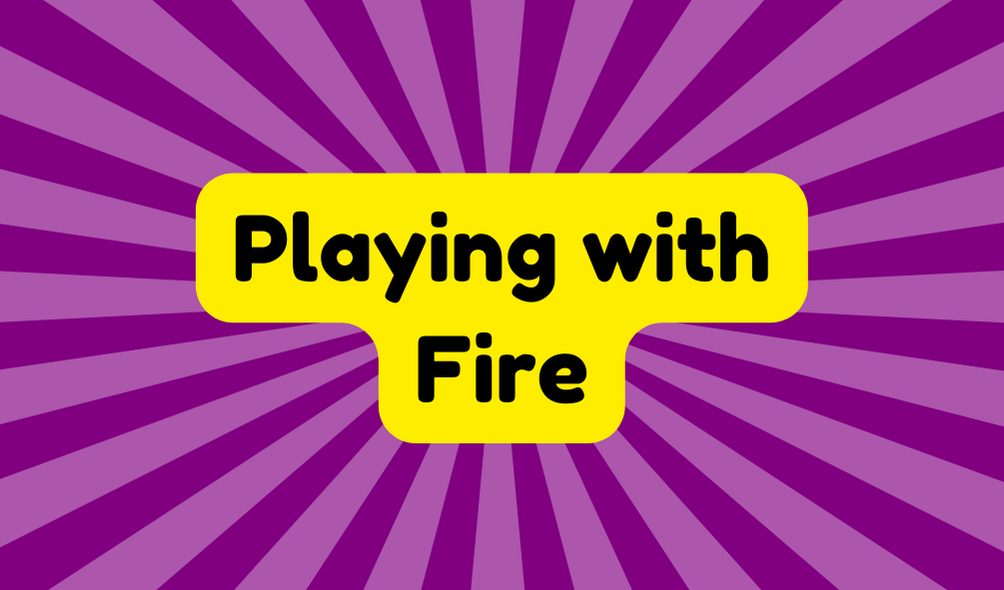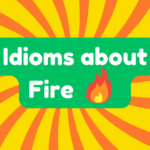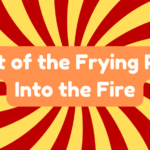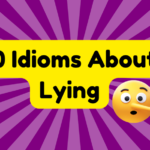“Playing with fire” is a common idiom that means engaging in risky or dangerous behavior that could lead to trouble. It suggests that someone is knowingly taking chances with potentially serious consequences, much like handling real fire without caution. The phrase is often used as a warning, emphasizing the idea that reckless actions can lead to harm.
Synonyms
Here are some alternative expressions that capture the essence of “playing with fire”:
- Flirting with danger – Engaging in risky behavior without fully realizing the consequences.
- Walking on thin ice – Acting in a way that could easily lead to trouble.
- Courting disaster – Taking unnecessary risks that could end badly.
- Pushing your luck – Taking repeated risks despite knowing the potential negative outcome.
- Tempting fate – Engaging in dangerous behavior with an assumption that nothing will go wrong.
Each synonym highlights a different aspect of risk-taking, whether it’s intentional recklessness or overconfidence.
Example Sentences
- “Ignoring safety protocols at work is like playing with fire—you’re bound to get burned.”
- “He keeps cheating on his exams; he’s really playing with fire.”
- “Investing all your money in a volatile stock market without research is playing with fire.”
- “She knew arguing with her boss was playing with fire, but she spoke her mind anyway.”
These examples show how the phrase applies to different life situations, from personal choices to workplace behavior.
Origin
The phrase “playing with fire” has been around for centuries and draws from the literal danger of handling fire carelessly. Fire has always been a symbol of both power and destruction, making it a natural metaphor for risky behavior.
In literature and philosophy, fire is often associated with temptation and consequence. A famous example is the Greek myth of Prometheus, who stole fire from the gods and suffered severe punishment. The phrase itself has been used in English since at least the 18th century to describe actions that invite trouble.
Collocations
- Play with fire and get burned – “If you keep breaking the law, you’re going to play with fire and get burned.”
- Like playing with fire – “Dating two people at the same time is like playing with fire.”
- Stop playing with fire – “I warned him to stop playing with fire before it was too late.”
- Dangerous game of playing with fire – “He’s in a dangerous game of playing with fire by making enemies at work.”
These common phrases emphasize the warning nature of the idiom.
How to Use in Everyday Language
- Casual Conversations:
“Skipping your assignments right before exams is playing with fire, don’t you think?” - Professional Settings:
“Cutting corners on product safety is playing with fire. It could lead to serious legal issues.” - Metaphorical Use:
“Trusting someone who has betrayed you before is playing with fire.”
The phrase is widely used in both personal and professional contexts to describe risky actions and their possible consequences.
Why Is It Still Relevant Today?
“Playing with fire” remains relevant because people constantly take risks—whether in relationships, business, politics, or daily life. The phrase serves as both a cautionary warning and a description of bold, sometimes reckless behavior.
In today’s fast-paced world, where people experiment with new technologies, investments, and social behaviors, the warning behind “playing with fire” is more significant than ever. It reminds us that while risk-taking can lead to rewards, it can also result in serious consequences if not handled wisely.







